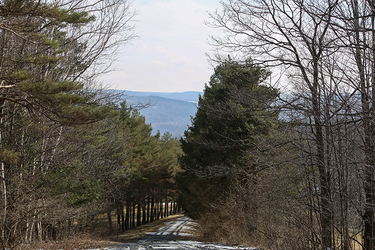Berne to sell Switzkill Farm after unanimous vote
BERNE — The Berne Town Board officially authorized itself to sell the 358-acre Switzkill Farm property to Albany County last week in a unanimous vote.
The vote followed a perplexing few months wherein the Albany County Legislature, in November, authorized County Executive Daniel McCoy to buy the property, announcing it as a done deal, only for the town to claim in December that it had never intended to sell at all, and that a sale would be illegal.
After The Enterprise reported that the sale would not, in fact, be illegal, and quoted county spokeswoman Mary Rozak saying the town had no reason to be confused about the terms of the lengthy negotiations, the town board reversed its stance and held a public hearing on Feb. 14, after which it took its vote.
Rozak did not respond to a request for comment this week.
As The Enterprise had previously reported, the notion of a sale was welcomed by supporters of the property who felt that the Republican-backed town board neglected Switzkill Farm since the GOP established its majority on the town board in 2020.
Republican-backed board members had long claimed that the property was a burden on residents, with a maintenance cost that exceeded what the property brought in as revenue in the few years that weddings and other events were hosted on the property — a practice that ceased in 2020.
The sale to the county promises to ease that burden with no discernible loss to the town or its residents.
Albany County is offering $150,000 for the property, which makes up for the $142,700 the town had initially paid towards it in 2014 — with the rest of the property’s total value of $475,000 coming from the county and the Open Space Land Institute — while also reimbursing the town for at least some of the money it put toward maintaining Switzkill Farm.
McCoy told The Enterprise that the county’s immediate plans are to prevent any further deterioration of the various buildings on the property, and that full optimization efforts will be a ways away, as the county prioritizes its other recreational properties, like Lawson’s Lake.
“It is unfortunate that the condition of the Lodge and the other farm’s buildings have been allowed to deteriorate over the past four years,” McCoy said, “but I’m optimistic that will now change under the County’s purview, and it will become the asset it was intended to be.”
The only potential obstacle that remains is the chance for any unhappy residents to trigger a permissive referendum by submitting a petition with the number of signatures totaling at least 5 percent of Berne residents who voted for governor in the last general election.
However, given the enthusiasm around the sale from supporters, and the fact that the property would be all but impossible to sell to a private developer due to state regulations around parkland and a conservation easement that was placed on it at the time of the original purchase, a call for referendum seems unlikely to come from either side.

